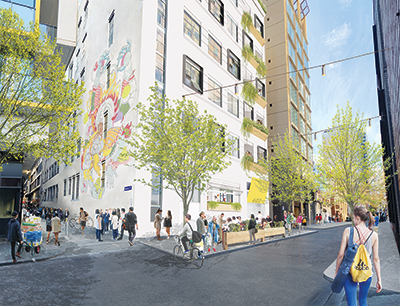City of Melbourne is delivering on its commitment to provide a safe place to stay for people sleeping rough on the streets by converting an old industrial building in the central business district CBD into supported accommodation.
The redevelopment of 602 Little Bourke Street, a former electricity network building owned by the City, will provide up to 50 studio apartments over several floors once the project is fully complete.
Along with the building worth $7.45 million, Council has allocated $365,000 to begin the refit in this year’s Budget. The total cost of the project is anticipated to be $20 million.
The Lord Mayor’s Charitable Foundation has pledged its support for the project and detailed discussions have commenced with potential donors, supporters and partners, with further funding announcements expected to be made soon.
City of Melbourne will partner with the Victorian Government to deliver the accommodation which will include tailored support services including doctors, mental health professionals, counsellors and housing specialists.
Melbourne Lord Mayor, Sally Capp said this project would provide a safe place to sleep for some of the city’s most vulnerable.
“Providing a safe and secure home will be life-changing for people who have been forced to sleep rough on our streets.
“Solving homelessness is a huge challenge but the City of Melbourne is doing its best by delivering dozens of safe studio units with support services.
“In addition to helping our community’s most vulnerable, this project will also create more than 70 jobs in construction as well as dozens of ongoing roles once the accommodation is up and running.
“I’d like to thank organisations such as Housing All Australians, the Council to Homeless Persons and so many more for their continued advocacy on this important issue.”
602 Little Bourke Street is the first step in the City of Melbourne’s Make Room initiative to provide more support for people who sleep rough across the inner-city each night.
Accommodation will be offered via referrals from homelessness support agencies, with services designed to help people connect with support services while having a secure home.
The support accommodation will have a 24-hour concierge service and will be home to a social enterprise on the ground floor, enabling further employment and training opportunities.

















